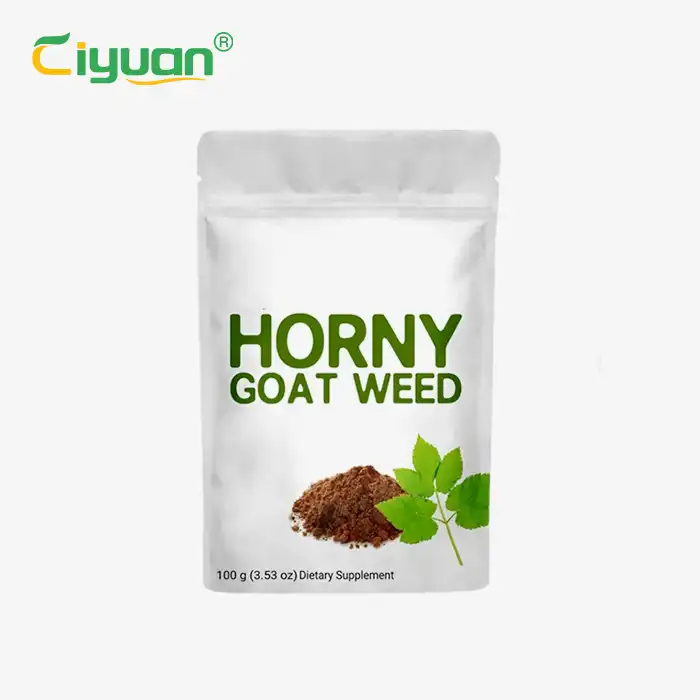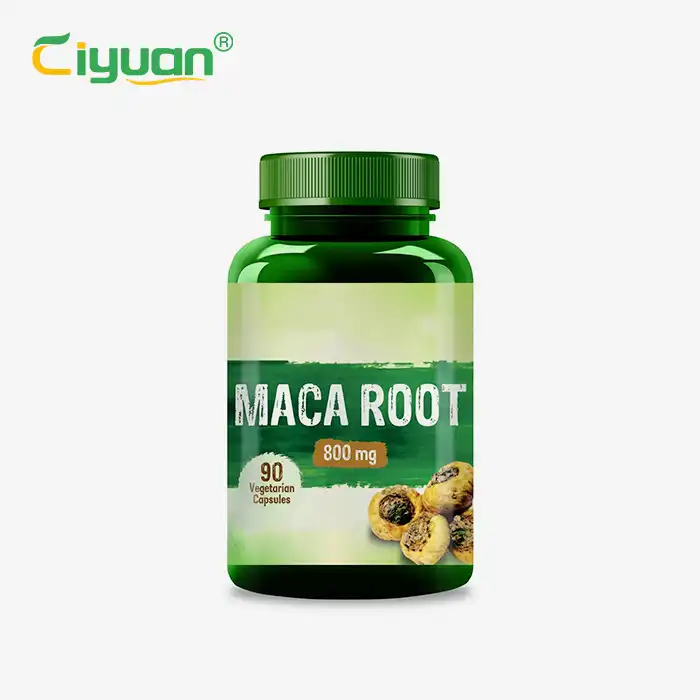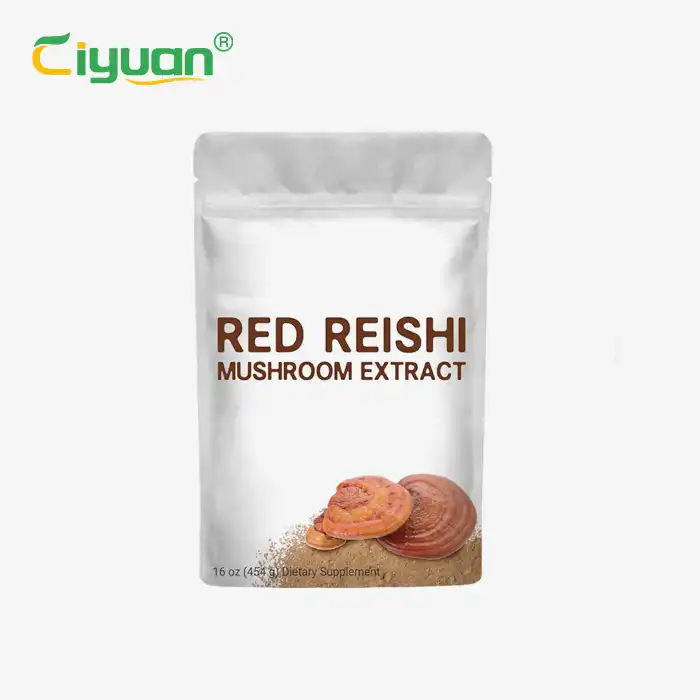Why is Angelica Sinensis a Long-lasting and Popular Chinese Herbal Medicine?
 2025-08-04 10:53:20
2025-08-04 10:53:20
Angelica Extract Tablets (scientific name: Angelica sinensis), a perennial herb, can grow up to 0.4 to 1 meter tall. The flowering period is from June to July, and the fruiting period is from July to September. It is mainly produced in the southeast of Gansu Province, with Minxian County having the largest output and the best quality. It is followed by Yunnan, Sichuan, Shaanxi, Hubei and other provinces, all of which are cultivated. It has also been introduced and cultivated in some provinces and autonomous regions in China. Its root can be used as medicine and it is one of the most commonly used traditional Chinese medicines. It has the functions of replenishing blood and harmonizing blood, regulating menstruation and relieving pain, moistening dryness and lubricating the intestines, anti-cancer, anti-aging and preventing aging, and immunity.

Cultural Story

There are two records in the Records of The Three Kingdoms that are related to the traditional Chinese medicine Angelica sinensis. The first one is from the "Records of The Three Kingdoms: Book of Wu - Biography of Taishi Ci", which states that when Cao Cao heard that Taishi Ci was serving the Eastern Wu, he knew that he was very talented and asked him to leave the north of Wu and return to Wei. So he sent Taishi Ci a letter, in which he put some Angelica sinensis. The second one is recorded in "Records of The Three Kingdoms: Book of Shu: Biography of Jiang Wei" : In the sixth year of Jianxing, Ma Zun, the governor of Tianshui Commandery in the State of Wei, was extremely unfriendly to Jiang Wei and suspected that he had ulterior motives. Jiang Wei then resolutely defected to Zhuge Liang. The strategists of the State of Wei knew that Jiang Wei was a rare talent, so they tried every possible way to persuade him to "return". They knew that Jiang Wei was a filial son, so they brought his mother to Luoyang and forced her to write a letter to Jiang Wei, attaching Angelica sinensis in the envelope, with the intention of asking Jiang Wei to return to the State of Wei.
After receiving the letter, Jiang Wei understood its meaning. However, he kept a clear distinction between public and private affairs. After much deliberation, he believed that the Shu Kingdom was the legitimate state of the Han Dynasty. Moreover, Zhuge Liang had great trust and respect for him. He thought that when the Central Plains were unified, it would be the day when his mother and son were reunited. At that time, he would resign from his official position and return to his hometown to serve his elderly mother, which would make him both loyal and filial. Wouldn't that be even better? So he wrote back to his mother, attaching some medicinal herbs to express his aspiration: "A hundred hectares of good farmland does not lie in one mu (mother)." But having lofty aspirations does not lie in Angelica." A mother knows her son best. When Jiang's mother received her son's letter, she said very understandingly, "My son has lofty aspirations, but I have no other requests."
Later, the State of Wei repeatedly forced Jiang's mother to write letters to persuade Jiang Wei to abandon Shu and join Wei, but all were refused by Jiang's mother. After Jiang Wei's death, the people of Shu held him in high regard and built a Jiang Wei Temple, also known as Jiang Gong Shrine, at Jian Ge where he had held troops for many years.
The Benefits of Angelica Sinensis
According to traditional Chinese medicine, Angelica sinensis is sweet and heavy in taste, thus it is particularly effective in replenishing blood. Its qi is light and pungent, so it can also promote blood circulation. It combines tonification with movement and circulation with tonification, making it a key herb for blood. Therefore, it can not only replenish blood but also promote blood circulation, and it can both unblock meridians and activate collaterals. Angelica sinensis can be used to treat common diseases among women, such as irregular menstruation, dysmenorrhea, blood deficiency amenorrhea, sallow complexion, anemia due to weakness, uterine bleeding, postpartum blood stasis, and amenorrhea (bleeding from the mouth and nose during menstruation). Angelica sinensis is the most commonly used medicine in traditional Chinese medicine and is often used to make soup. It is especially suitable for patients with anemia. It can also significantly promote the hematopoietic function of the body and increase the content of red blood cells, white blood cells and hemoglobin.
Replenish and nourish the blood:
Angelica sinensis is sweet and heavy in taste, so it is particularly effective in replenishing blood and is regarded as the top medicine for blood replenishment. It is suitable for treating symptoms such as pale or sallow complexion, fatigue, pale lips and nails, dizziness, palpitations and insomnia caused by blood deficiency of the heart and liver. Angelica sinensis, when combined with Rehmannia glutinosa, Paeonia lactiflora and Ligusticum chuanxiong, forms the representative blood-nourishing formula - "Siwu Decoction", which has the function of regulating menstruation and nourishing blood, and is especially suitable for the treatment of postpartum blood deficiency.
Moistening the intestines and promoting defecation:
According to traditional Chinese medicine, essence and blood have the same origin. People with blood deficiency also have insufficient body fluids, and intestinal fluid deficiency can easily lead to constipation. Angelica sinensis can moisten the intestines and relieve constipation. It is often used in combination with hemp seeds, bitter almonds and rhubarb to treat constipation caused by blood deficiency. When combined with Divaricata, Ligusticum chuanxiong, peony, rhubarb, mint leaves, Ephedra and other ingredients, it forms the Fangfeng Tongsheng Powder, which can clear heat and relieve constipation.
Regulate menstruation and promote blood circulation:
Angelica sinensis has a light and pungent nature, thus it can also promote blood circulation. It can not only regulate and unblock menstruation but also activate meridians and relieve pain. It is especially suitable for women to use and is particularly effective for menstrual disorders, dysmenorrhea, blood deficiency amenorrhea and other conditions. It was called the "holy medicine for gynecology" by the ancients. When combined with peach kernels, safflower, rehmannia glutinosa, Paeonia lactiflora and Ligusticum chuanxiong, it forms a well-known gynecological prescription - Taohong Siwu Decoction, which is often used for early menstruation and dysmenorrhea.
The effect on uterine smooth muscle:
The volatile oil of Angelica sinensis has an inhibitory effect on isolated uteruses, making rhythmic contractions in a flaccid state and countering uterine contractions.
Anti-aging and prevention of aging:
The decoction of Angelica sinensis has a significant effect on the learning and memory of mice. It was determined by the Ya maze method that Angelica sinensis can improve the dementia caused by aluminum trichloride, reduce the level of peroxidized esters in the brain of dementia mice and the activity of B-type monoamine oxidation, and can treat Alzheimer's disease.
Immune function:
Angelica sinensis and its extracts sodium ferulate and Angelica sinensis polysaccharides have a significant stimulating effect on the mononuclear-macrophage system and also have an immune regulatory and restorative effect on the immune system of the body with low immune function. Angelica sinensis also has a promoting effect on the transformation of lymphocytes in healthy people.

The Clinical Application of Angelica Sinensis
Acupoint injection of Angelica sinensis liquid has a good therapeutic effect on lumbar muscle strain, muscle rheumatism, joint sprains of the limbs, arthritis, and various types of neuralgia (sciatica, intercostal neuralgia, occipital neuralgia, etc.). According to the treatment results of 1,000 cases of muscle, joint, nerve and vascular tissue diseases caused by various reasons, the effective rate reached 89.1%, among which 381 cases were cured and 510 cases improved. According to the observation of 50 cases of occipital neuralgia, after 1 to 15 treatments, 33 cases were cured, and the rest also improved to varying degrees. The vast majority of cases experience basic pain relief or significant improvement within 1 to 3 minutes after the first injection, and the pain relief effect can last for 2 to 8 hours, remaining effective when injected again. Practical experience has shown that acupoint injection of Angelica sinensis not only has a significant analgesic effect, but also has the functions of relaxing muscles, reducing inflammatory responses in soft tissues, and improving peripheral nerve and vascular functions. Usage: Apply 5-10% Angelica sinensis liquid along the meridians to select acupoints, pain points or sensitive points, or inject it into the tendon sheath. Each time, select 1 to 4 points and inject 1 to 5 milliliters into each point. The needle penetrates the muscular layer, causing a sensation of soreness and distension. After the needle is drawn back and there is no blood, the medicinal liquid is pushed in. Generally, there are no side effects, but when injected into the tendon sheath.
Conclusion

Angelica sinensis has many benefits, but it also has many contraindications. One should be cautious when taking it. Many people can consume Angelica sinensis, but it is essential to take it in moderation; otherwise, it is very likely to cause side effects. Occasionally, excessive oral administration of Angelica sinensis decoction or powder may cause reactions such as fatigue and drowsiness, which can disappear after discontinuation of the medication. Acupoint injection of Angelica sinensis volatile oil can cause patients to have reactions such as fever, headache, dry mouth and nausea, which can be relieved by themselves. High-dose administration can cause a drop in blood pressure. If the dose is further increased, blood pressure will drop sharply and breathing will stop. The extract of Angelica sinensis ether is highly toxic and a small amount can cause death. The clinical use of Angelica sinensis should not be excessive, and attention should also be paid to whether there are any adverse reactions after taking the medicine. Therefore, it is best to take it as directed by a doctor.
Reference

1. It belongs to Angelica L. Flora of China.
2 Angelica sinensis (Oliv.) Diels Flora of China










_1739968690969.webp)
_1739968599061.webp)
_副本_1751439743638.webp)
_1753769360691.webp)
_1755068691891.webp)
_1755679652237.webp)

_1740991191787.webp)

